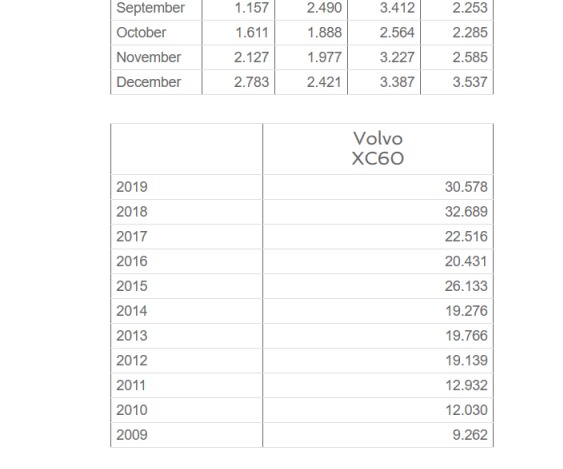I think we're dealing with a colloquial issue. While I can point to countless examples such as Corolla, Mustang, Corvette, where they go many major changes, they are normally refereed to as new platforms, or new generations. I don't think anyone in the states would call it an all new model.. that implies a new name. And there are examples of that... such as Malibu to Lumina (and back to Malibu) where they are refered to as different models, but really were the same car carries through different generations with different names.
The termoniology does't really affect big bangs point. But that point to me is still wrong, or at least incomplete. As I pointed out, the data used is calendar year rather than model year. It also doesn't account for WHEN Volvo cashes out inventory. They can call them sold units even though they didn't enter consumer hands yet. Further comparing to other brands in other years doesn't account for other economic factors. A big one now one brought up for US sales is the switch from China to Sweden for US production (which these numbers are based on). There were some production constraints in the turnover and this was only affecting the XC60. So with overall sales up, overall SUV sales up, a new SUV model from Volvo offered, and only a small drop in XC60 reported sales I don't think you can really draw many negative conclusions other than Volvo SUVs are more popular than they were last year.
![Image]()


